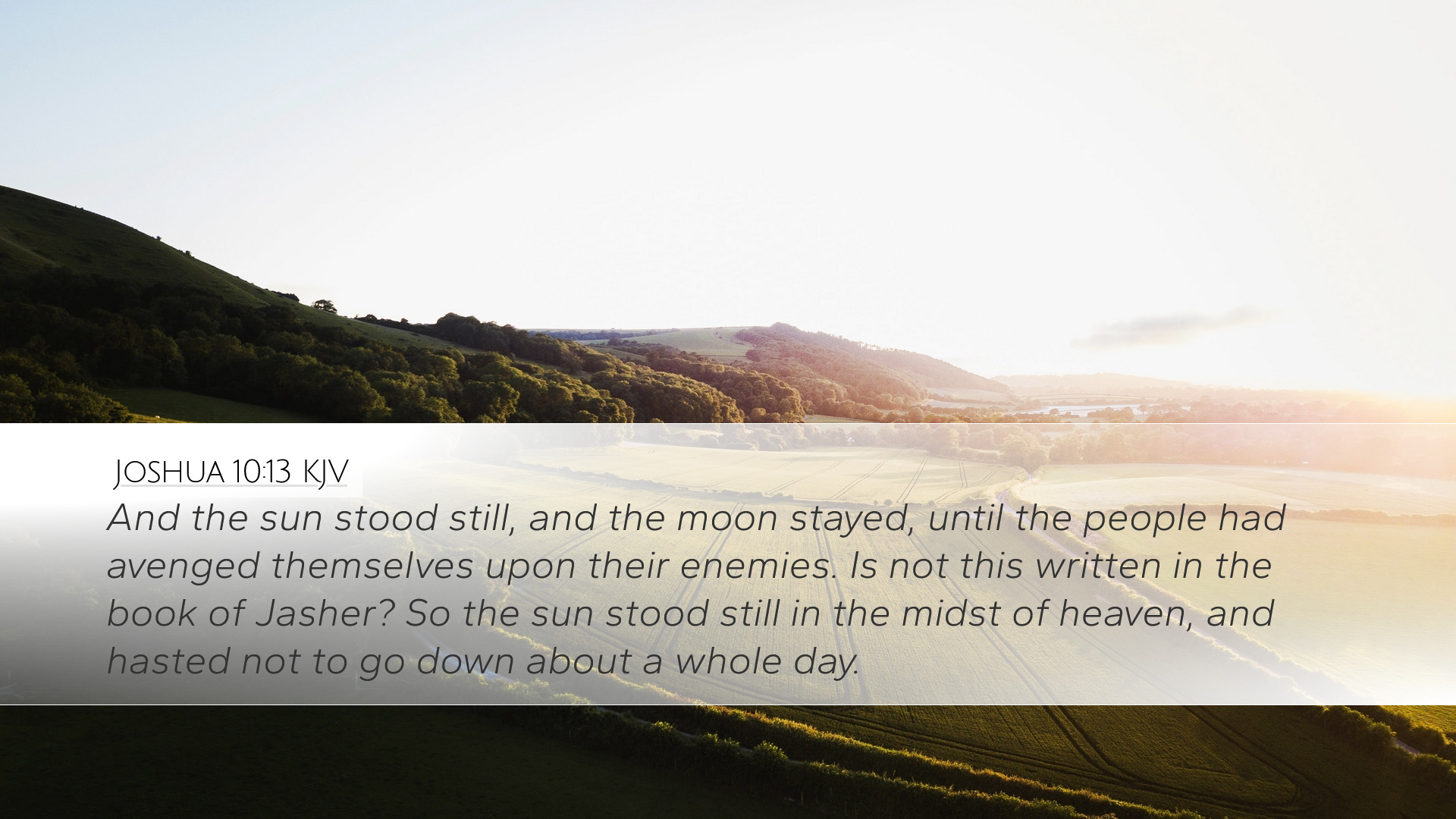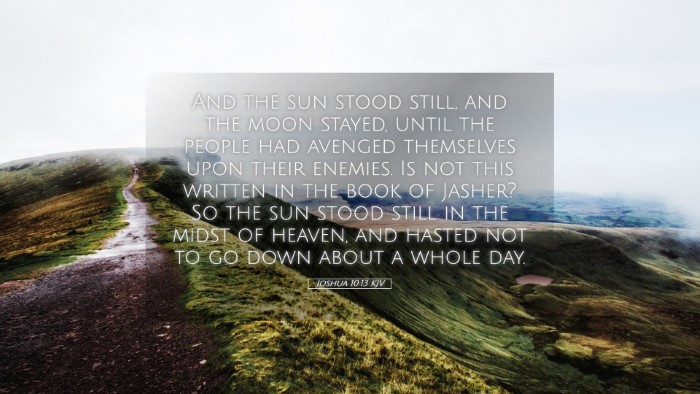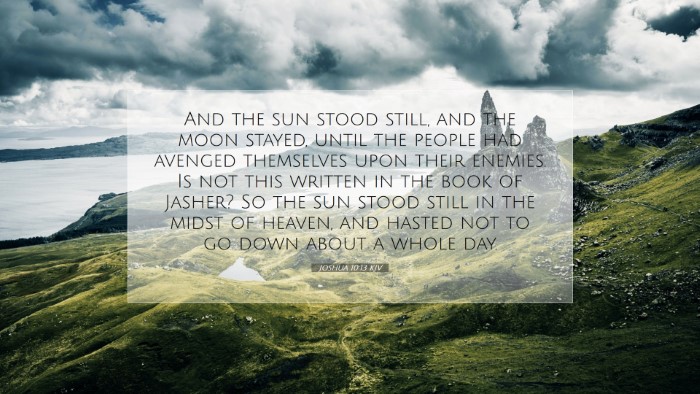Commentary on Joshua 10:13
Verse: Joshua 10:13
“And the sun stood still, and the moon stayed, until the people had avenged themselves upon their enemies. Is not this written in the book of Jasher? So the sun stood still in the midst of heaven, and hastened not to go down about a whole day.”
Introduction
Joshua 10:13 narrates a remarkable event in Israel’s conquest of Canaan, where God intervenes to extend daylight so that His people could achieve victory over their enemies. This passage raises profound theological implications alongside historical considerations, commanding the attention of pastors, students, theologians, and biblical scholars.
The Divine Intervention
Matthew Henry elaborates on the extraordinary nature of this miracle, noting that it is a direct intervention by God to assist His people. He highlights that this event was part of God’s promise to Israel and serves to illustrate His omnipotence and commitment to fulfill His covenant.
Omnipotence of God
Henry argues that if the Creator of the universe can stop celestial bodies, He undoubtedly wields supreme authority over all creation. This assertion calls believers to trust in God’s power in their lives, illustrating that divine support can manifest even in the most incredible circumstances.
The Context of the Battle
Adam Clarke situates this event in the broader narrative of Israel’s military campaigns against the Amorite kings. He emphasizes the strategic importance of the day’s extended light, allowing the Israelites to pursue their enemies who were fleeing into the hills. Clarke notes the theological implications: God’s direct involvement not only grants Israel victory but also demonstrates His sovereignty over time and nature.
Moral Imperatives
Clarke also points out the moral imperative for the Israelites. They acted with zeal and courage, avenging themselves upon the enemies who opposed God’s chosen people. This suggests that, while the miracle demonstrates divine power, it is the faith and action of the people that God empowers.
The Book of Jasher: Historical Insight
Albert Barnes raises the question regarding the “book of Jasher” mentioned in the verse. This ancient text, now lost, is referred to as a record of Israelite victories and genealogies. Barnes proposes that this indicates that the miracle was witnessed and acknowledged in the ancients’ historical narratives, solidifying its authenticity and significance.
Faith and History
The mention of the book underlines the importance of documenting providential events. It serves as an admonition for contemporary believers to record and remember God’s workings in their lives, fostering a historical consciousness that affirms faith across generations.
Theological Reflections
This passage invites theological reflection on the nature of God, time, and human agency. The miracle invites believers to consider how divine action interacts with the temporal world. It provides a rich foundation for exploring themes of divine sovereignty and human responsibility, a discussion essential for scholarly discourse.
Divine Sovereignty
The divine sovereignty highlighted in Joshua 10:13 asserts that God is not merely a distant creator, but actively involved in the affairs of humanity. This aspect of the theology of providence encourages believers to seek God’s guidance and intervention in their daily challenges, trusting Him for the battles they face.
Human Agency
While emphasizing divine intervention, the narrative concurrently upholds the value of human effort. God intervenes while Israel engages in battle, portraying a cooperative dynamic where faith is acted upon through courageous deeds. This principle resonates deeply in pastoral contexts, urging believers to pursue both prayer and action in challenging situations.
Conclusion
Joshua 10:13 serves as a monumental reminder of God’s responsiveness to His people’s needs and the power of faith acted out in courage. Thorough analysis through commentaries by Henry, Barnes, and Clarke reveals deeper insights into the interplay between divine power and human endeavor. For pastors, students, and scholars alike, this passage calls for a deeper exploration of God’s active presence in the world and the required human response to His faithfulness.
Key Takeaways
- God's Omnipotence: The miracle affirms the all-powerful nature of God, capable of controlling time for His purposes.
- Historical Context: The involvement of the book of Jasher indicates the importance of recording and recognizing divine acts in history.
- Faith and Action: The conjunction of faith with human effort emphasizes the active role believers are called to play in realizing God’s will.
- The Sovereignty of God: This event highlights how God intervenes in the affairs of humans, offering assurance to those who trust in Him.
- Encouragement for Believers: This narrative provides confidence in praying for divine assistance in struggles, reinforcing God's responsiveness to His people.


